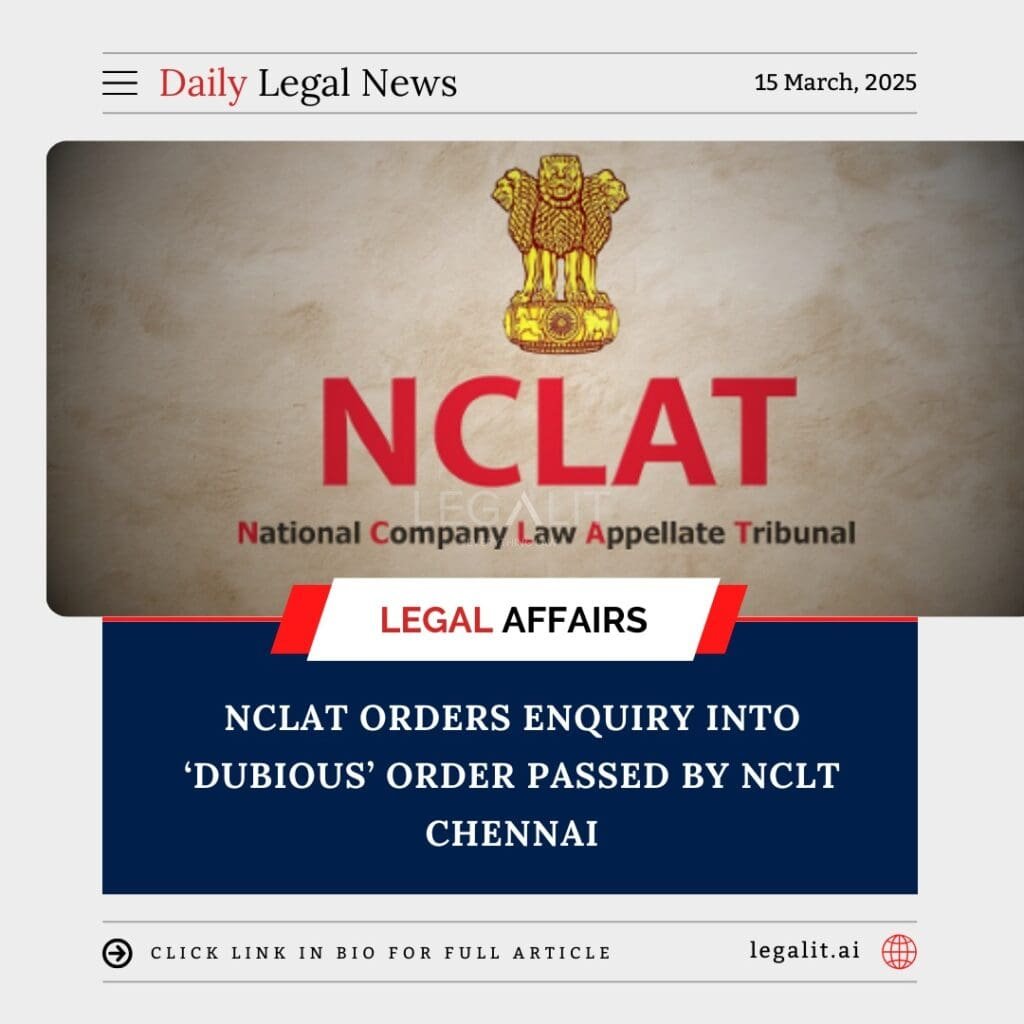
Background
The National Company Law Appellate Tribunal (NCLAT) has directed an enquiry into a controversial order passed by the National Company Law Tribunal (NCLT) Chennai, questioning its validity and the circumstances under which it was issued. The appellate tribunal’s decision follows allegations of procedural irregularities and potential misconduct in the handling of the case by the NCLT bench.
The matter came to light after an appeal was filed against the NCLT Chennai’s ruling, which was described as being inconsistent with legal principles and possibly influenced by external factors. The appellant contended that the order lacked transparency and deviated from established judicial norms.
Court’s Rationale
The NCLAT, after reviewing the order in question, raised serious concerns about:
- Lack of Due Process
- The appellate tribunal found that the NCLT’s decision did not follow standard legal procedures.
- It questioned whether all parties were given a fair hearing before the order was passed.
- Possible Judicial Overreach
- The NCLAT observed that the NCLT Chennai bench may have acted beyond its jurisdiction.
- It indicated that the order contained elements that appeared arbitrary or inconsistent with company law principles.
- Potential External Influence
- The tribunal noted allegations that the order may have been passed under questionable circumstances.
- It directed an investigation to determine if any undue influence was exerted on the adjudicating members.
Existing Legal Framework
The NCLAT’s decision to order an enquiry aligns with:
- The Companies Act, 2013 – Governs the functioning of NCLT and NCLAT and mandates judicial integrity in corporate adjudication.
- Principles of Natural Justice – Ensures that all parties receive a fair hearing and prevents arbitrary judicial actions.
- Judicial Conduct Regulations – Establishes guidelines for the impartiality and ethical conduct of tribunal members.
Implications of the Judgment
- For the NCLT Chennai Bench – Could lead to disciplinary action or restructuring of the tribunal if misconduct is proven.
- For Corporate Litigants – Highlights the importance of transparent adjudication in company law cases.
- For the Judiciary – Reinforces accountability among quasi-judicial bodies.
- For the Investigation – The enquiry may uncover systemic issues affecting tribunal proceedings.
Conclusion
The NCLAT’s decision to scrutinize the NCLT Chennai’s order underscores the judiciary’s commitment to transparency and fairness in corporate adjudication. The findings of the enquiry could have lasting effects on the credibility of the NCLT and the overall regulatory framework governing corporate disputes.